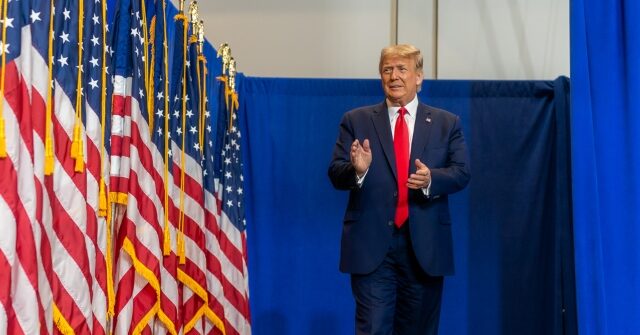Santa Cruz Mayor Credits Trump for Drop in Southern Border Encounters
In a recent appearance on NewsNation’s “The Hill,” Santa Cruz, California Mayor Fred Keeley surprisingly gave credit to former President Donald Trump for the significant decline in encounters at the southern border. During the broadcast, host Blake Burman posed a straightforward question to Keeley: “Do you give President Trump credit for the southwest border encounters dropping drastically, down to 8,300 in February?” Keeley responded unequivocally, stating, “Absolutely. Absolutely.” His response has sparked interest, particularly given the political dynamics surrounding border security and immigration policies in the United States.
Background on the Border Encounters
The southern border of the United States has long been a focal point of political debate, with discussions often centered around security, immigration reform, and humanitarian concerns. In recent months, there has been a notable reduction in the number of reported encounters at the border, with February’s numbers dropping to 8,300. This decline has been attributed to a variety of factors, including policy changes, enforcement strategies, and external circumstances such as global migration trends. While the issue of border security is complex and multifaceted, Keeley’s remarks highlight the impact of federal policies on border management.
Keeley’s Perspective on Federal and Local Responsibilities
Mayor Keeley emphasized the distinction between federal and local responsibilities during the interview. He made it clear that border security falls under the purview of the federal government, stating, “The federal government is in charge of the border. It’s not the city of Santa Cruz. They want to secure the borders, that’s their business.” This statement underscores the understanding that while local governments have their own priorities and challenges, issues such as border security are primarily managed at the federal level. Keeley’s comments reflect a pragmatic approach to governance, acknowledging the role of federal authorities while asserting the autonomy of local governments to set their own priorities.
The Broader Context of Immigration Policy
Keeley’s acknowledgment of Trump’s role in addressing border encounters is particularly notable given the polarized nature of immigration policy discussions in the United States. While Trump’s administration was known for its hardline stance on immigration, including the construction of a border wall and stricter enforcement measures, the effectiveness and ethics of these policies have been subject to intense debate. Despite the controversies surrounding Trump’s approach, the data suggesting a reduction in border encounters has led some, like Keeley, to acknowledge the apparent results of these policies.
Santa Cruz’s Stance on Immigration and Local Priorities
As mayor of Santa Cruz, Keeley has consistently emphasized the importance of addressing local issues and setting priorities that align with the needs and values of the community. While the federal government focuses on border security and immigration policies, Keeley and other local leaders are tasked with managing the day-to-day challenges faced by their constituents. This includes issues such as public safety, economic development, and social services, which may or may not intersect with federal immigration policies. Keeley’s comments suggest a recognition of the federal government’s role in border management while maintaining a commitment to Santa Cruz’s distinct priorities.
The Balance Between Federal and Local Governance
Keeley’s remarks also highlight the interconnected yet distinct roles of federal and local governance in addressing complex issues like immigration. While the federal government sets the broader policies and enforces border security measures, local governments often bear the responsibility of managing the practical implications of these policies within their communities. This balance is crucial in ensuring that both national security and local needs are addressed effectively. By acknowledging the role of federal actions in reducing border encounters, Keeley demonstrates an understanding of this dynamic and the importance of collaboration between different levels of government.
In summary, Santa Cruz Mayor Fred Keeley’s acknowledgment of President Trump’s impact on the reduction of southern border encounters reflects a pragmatic perspective on the roles of federal and local governance. While border security is a federal responsibility, local leaders like Keeley are focused on addressing the unique challenges and priorities of their communities. The interplay between these levels of government is essential in navigating the complexities of immigration and border management, and Keeley’s comments provide a nuanced view of this relationship.


